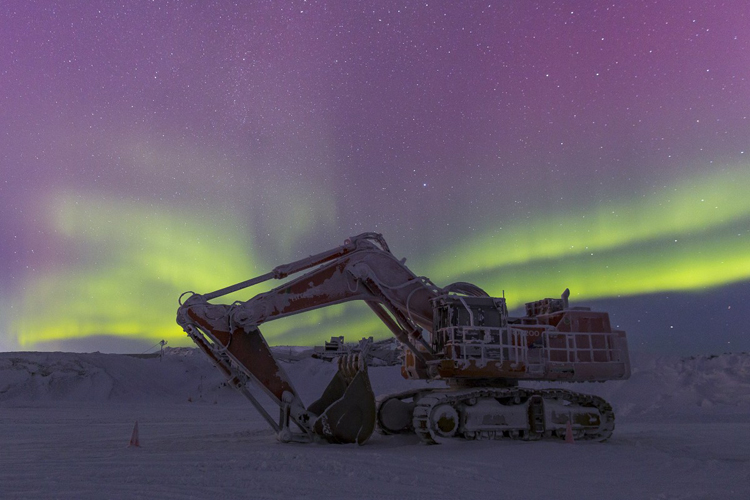Covid-19: Insights from Québec

Mathieu Savard, Chairman, Québec Mineral Exploration Association (QMEA):
“Today we are witnessing a tough situation that is incomparable to anything else directly experienced.
At QMEA, we recommended to all of our members to strictly follow government protocols and directives, prioritizing health and safety above all. At present, the overwhelming goal is to flatten the curve of the spread of covid-19.
This year, we were expecting investments in exploration to remain around half a billion dollars, which was the case for the financial years of 2018 and 2019.
However, the assumptions made up until a few months ago were based on the benchmarks of a healthy economy, and the covid-19 crisis will undoubtedly have a heavy impact on financing for exploration companies in 2020.
Access to capital will be challenging for many different players, despite the fact that Québec boasts an attractive incentive structure and unique institutional support, on top of being a jurisdiction that is safe and predictable for investors.
The impact of covid-19 on the markets is already strikingly visible- in terms of mining; we are back at 2017’s market level. The strategy of governments is to replace the loss of private investment by launching and investing huge development and construction projects, which should stimulate demand for different metals required for construction.
The current global economic context and the post covid-19 crisis should favor gold to remain a safe-haven currency.
Crises are a crucial time for companies to innovate and adapt, and I stay an optimist in thinking we may take away something greater from the current situation, something we cannot yet see as we are crossing through the middle of the crisis.
Looking at China, covid-19 seems to have been controlled, while the rest of the world still has a few tough weeks ahead. Once we overcome the crisis, exploration companies will need economic and financial incentives more than ever to safeguard their current assets.
Our thoughts go to all individuals and businesses overcoming this difficult time. At QMEA, we have not changed our plans to host the Xplor Convention in October, trusting that the situation will have significantly improved by then. QMEA continues to support exploration in Québec, because only with new discoveries will we be able to trigger a domino effect and attract investors and more exploration subsequently.”
Marco Prud’Homme, President, Nolinor:
“In the past two months, everything has changed for carriers. Whereas before the covid-19 pandemic the biggest issue the industry confronted with was the lack of available personnel, many airlines are laying off people these days, and the lack of pilots is unlikely to preoccupy airlines in the near future.
Many airlines will also not be able to survive the current crisis.
For now, Nolinor has not interrupted its service, but the future is unpredictable. We have seen some mines slowing down or temporarily closing, so Nolinor has sought to adapt correspondingly.
The main focus the company takes at the moment is to look after the wellbeing of the staff, and to being able to retain the team. We encourage our staff to take enough breaks, rest well, eat well and take all sanitary precautions. Nolinor equipped all of its crews with gloves and face masks even before Transport Canada made the recommendation.
For our clients, we take each passenger through a medical questionnaire and take their temperature before embarking on flights. Our personnel are equipped with gloves, masks, and the in-flight meal service has been changed to a sealed lunchbox. We have also changed the configuration of the seating so that there is sufficient space to delimitate between each passenger.”
Andrew Wilkins, Vice President – Business Development and Marketing, DGSC (Distributed Gas Solutions Canada):
“The reaction of the oil market to the supply and demand imbalance today for petroleum-based products due to the health crisis is a clear reminder of how vulnerable we are to geopolitical events around the world and it underlines that petroleum-based fuels are exposed to higher price volatility than natural gas. Between January 2nd and April 17th, Henry Hub natural gas spot price decreased by 15% whereas during the same period, WTI crude oil spot price decreased by 70%.
There is no doubt that the collapse of oil prices will affect near-term prospects of natural gas penetration in the mining sector, however, many believe the oil price collapse is a relatively short term issue and, as North America and the rest of the world emerges from the covid-19 crisis, global energy supply and demand forces will return to normal and oil prices will likely trend towards pre-crisis levels.
DGSC helps customers reduce their GHG emissions and fuel costs and, even though the cost-benefit has temporarily been narrowed, we believe that natural gas will continue to offer fuel cost savings in the future.”
(This article first appeared in the Global Business Reports)
{{ commodity.name }}
{{ post.title }}
{{ post.date }}




Comments